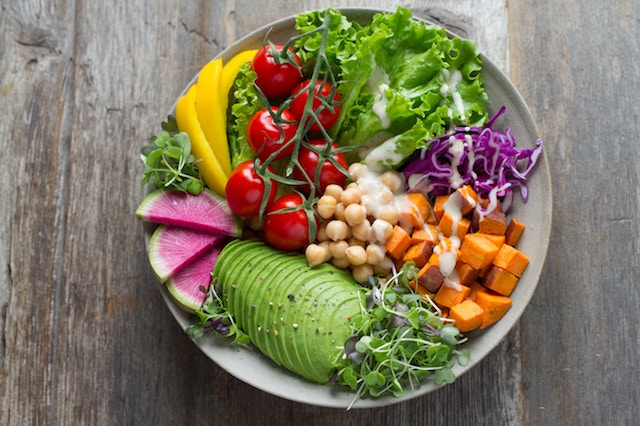How Food Affects Your Mood: 20 Brain-Boosting Foods to Support Mental Health

How Food Affects Your Mood: 20 Brain-Boosting Foods to Support Mental Health
How Food Shapes Your Brain and Your Mood
I can’t count the times I’ve noticed it in my own body — the difference between a quick, sugary “grab-and-go” breakfast and a protein-rich plate with greens. One leaves me edgy and tired by lunch. The other leaves me clear-headed and steady.
That’s because food is more than fuel. It’s brain chemistry. What you choose to eat can lift your mood, sharpen your focus, and steady your emotions — or it can leave you on the rollercoaster of crashes, cravings, and brain fog.
What Happens When You Eat Nourishing Foods
When you eat whole, nutrient-rich foods, you give your brain the raw materials it needs to regulate mood and focus.
Steadier blood sugar = steadier mood
Complex carbs like oats, quinoa, and sweet potatoes digest slowly, keeping your brain fueled.
Here’s Why: Stable blood sugar means a steady fuel supply for your brain — and a steadier mood for you.
Healthy fats = flexible brain cells
Omega-3s from salmon, walnuts, and flax help brain cells communicate clearly.
Here’s Why: Omega-3 fats reduce brain inflammation and strengthen cell membranes, lowering the risk of depression.
Magnesium and B-vitamins = calmer nerves
Avocado, pumpkin seeds, and leafy greens provide nutrients that calm your nervous system.
Here’s Why: Magnesium literally tells your nervous system to relax and helps lower stress hormones.
Protein = building blocks for feel-good chemicals
Foods like eggs, turkey, and cottage cheese provide amino acids your brain uses to make serotonin and dopamine.
Here’s Why: Without protein, your brain can’t make the neurotransmitters that regulate mood, motivation, and sleep.
Gut-friendly foods = happier brain
Yogurt, kefir, beans, and fiber-rich plants feed healthy gut bacteria.
Here’s Why: About 90% of serotonin is produced in your gut. A healthy gut = a healthier mood.
What Happens When You Eat Ultra-Processed Foods
On the flip side, diets high in refined sugar and processed snacks don’t just lack nutrients — they actively disrupt brain health.
- Blood sugar spikes and crashes → anxiety, irritability, fatigue
- Inflammation → slows brain signaling, linked to depression
- Gut imbalance → less serotonin production, more stress signals
- Nutrient gaps → brain runs out of raw materials to regulate emotions
Here’s Why: Ultra-processed foods are calorie-heavy but nutrient-poor. They overstimulate your system and undernourish your brain.
Simple Swaps That Support Your Brain
You don’t have to overhaul your diet overnight. Try one or two of these small shifts this week:
- Swap chips → pumpkin seeds or almonds
- Swap pastry breakfast → oats with berries
- Swap soda → sparkling water with citrus
- Add spinach or kale to one meal a day
The Takeaway
Food isn’t just fuel. It’s chemistry.
Nourishing foods stabilize blood sugar, reduce inflammation, and literally build the neurotransmitters that shape how you feel. Ultra-processed foods do the opposite — leaving your brain under-resourced and inflamed.
That means every meal is an opportunity: an orange with breakfast, salmon for dinner, pumpkin seeds on your salad. These small choices build resilience, clarity, and joy — one bite at a time.
Resource: Top 20 Foods for Brain + Mood Support
Save this list as your brain-boosting grocery guide. Pin it, screenshot it, or print it out — and use it to spark ideas the next time you’re planning meals or shopping.
- Salmon or sardines
• Eggs
• Avocado
• Pumpkin seeds
• Almonds & walnuts
• Chickpeas, lentils & beans
• Greek yogurt or kefir
• Leafy greens (spinach, kale, arugula)
• Dark chocolate (70%+ cacao)
• Oats
• Berries (blueberries, strawberries, cherries)
• Sweet potatoes
• Quinoa or brown rice
• Cottage cheese
• Turkey or chicken
• Hummus or tahini
• Citrus fruits
• Broccoli or cauliflower
• Olive oil
• Herbs & spices (turmeric, ginger)
About the Author
Ann Hackman is a Certified Health Coach through the Institute for Integrative Nutrition (IIN) and a NASM Certified Personal Trainer with advanced training in hormone health and metabolism. She’s the creator of NOURISH—a faith-infused, science-backed health coaching program designed to help women restore energy, balance hormones, support metabolism, and feel at home in their bodies again. Ann combines practical strategies with deep compassion, guiding women to make small, sustainable changes rooted in nourishment, grace, and truth.

Love the new name of the program and the tips in your newsletters!